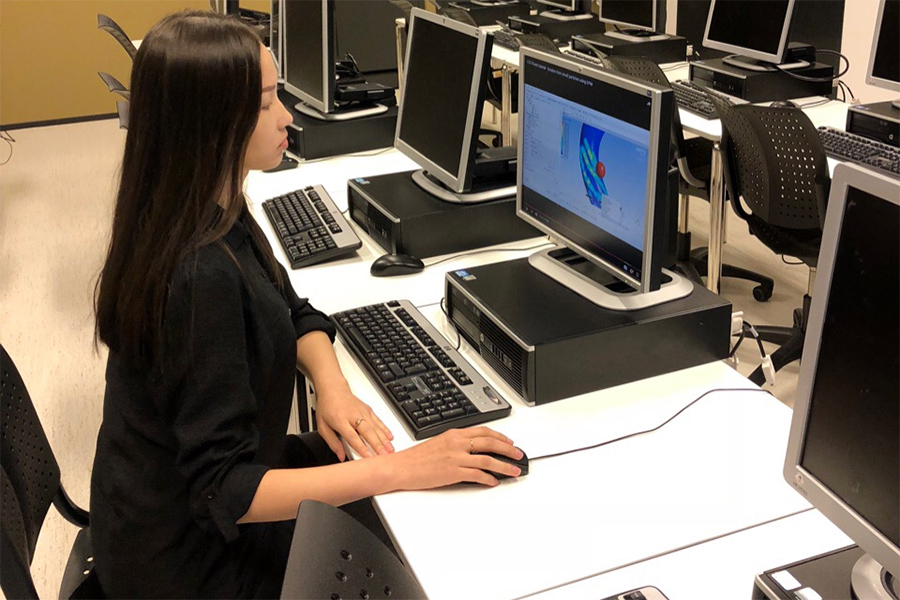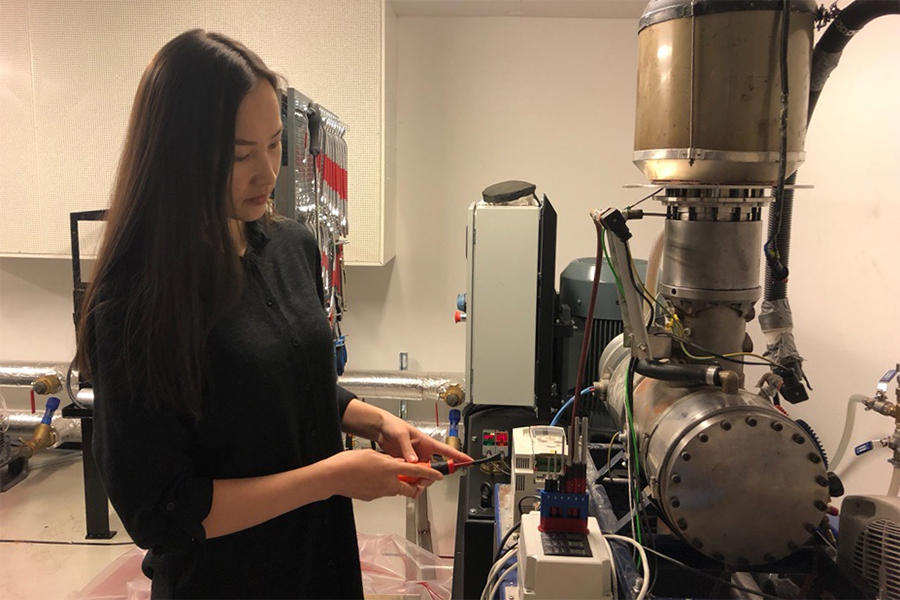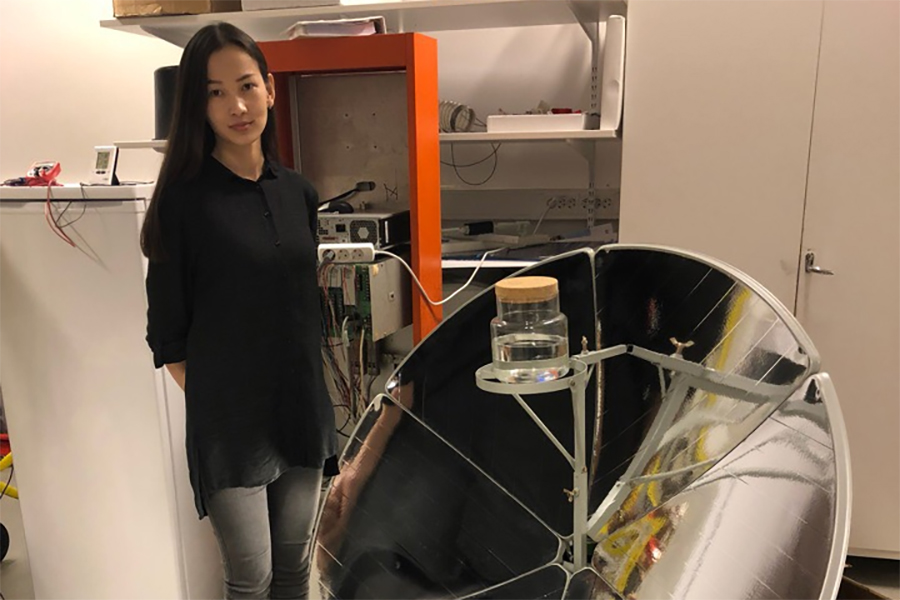Nazreke Saparbayeva, the last-year Master from the Department of Thermal Physics (INPhE) has visited the Western Norway University of Applied Sciences (Bergen) in spring 2018, where she took part in the research activities of a Bergen multiphase group.
Staying at the University, a numerical model of two-phase flow in a complex configuration channel was developed, as well as a number of experimental measurements on the installation of photo-thermal boiling of nanofluids. These experiments are particularly relevant in case of inter-University cooperation, as they were carried out in the framework of a joint project supported by the Russian Science Foundation (project number 17-79-10481). In addition to the scientific work, Nazerke got acquainted with the laboratory fund of the University (strength, motor, and wave laboratories).
The internship was memorable for Nazerke not only for the work on the project, but also for the acquaintance with nature, sights and unique culture of Norway. She told how she passed the selection for the internship, what she worked on, shared the results of experiments and plans for the future.
–Why did the Western Norway University of Applied Sciences choose you for the internship?
– It was connected with the theme of my graduation project - multiphase flows. My scientific supervisor Boris Viktorovich Balakin works in this direction both in Moscow and Bergen. The solution of a number of current tasks on my pre-diploma practice and diploma project, especially on experiments, was the most fruitful in the case of direct interaction with his group in Norway.

– How did you participate in the development of a numerical model of two-phase flow in a complex configuration channel, as well as in a number of experimental measurements at a photo-thermal boiling facility for nanofluids?
– I developed the model by myself, and in the experimental part I helped with the calibration of the light source, which is irradiated by nanofluid. It was necessary to determine the dependence of the radiant heat flux on the distance from the light source.
– What was the significance and relevance of these experiments?
– My experiments are a small part of the work on the study of the kinetics of photo-thermal boiling in nanofluids. This process is promising in solar and geothermal energy. Even now, there are projects of solar power generators and desalinators using nanofluids.

– What were the results of the experiments and where can they be used?
– Together with colleagues, I measured the required parameters. These figures were then used for calculations within the framework of the theory developed by the group. This link is the last article of the Russian-Norwegian group on the subject.
The obtained results can be used to develop photo-thermal systems using nanofluids: solar power generators, where steam obtained by the evaporation of water in nanofluids under the influence of sunlight is used to produce electricity on a small turbine; solar distillers. It is also possible to use the findings in medicine.
In addition to experiments, I was engaged in modeling of multiphase flow in the Venturi nozzle. It is a device for measuring the flow rate of gases and liquids, which is a pipe with a neck included in the pipeline rupture. As a result of this work, we published an article and made a report at a conference in Obninsk.

– What are your impressions after the internship?
– Throughout the period of internship in Bergen, the supervisor and local students helped to adapt to the new conditions. This period was remembered not only for the work on the project. In general, the new country with a unique culture, the atmosphere of the University with the European education system and friendly students left a positive impression.
– This year you are completing your master's degree at MEPhI, what are your plans for the future?
– After the master's degree I plan to continue my path in science. During the pre-graduation practice at home, in Kazakhstan, I was glad to share my knowledge with students in KazNTU named after K. I. Satpayev. The next stage is the doctoral candidacy.





